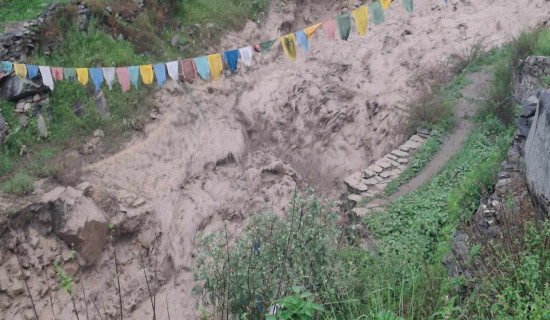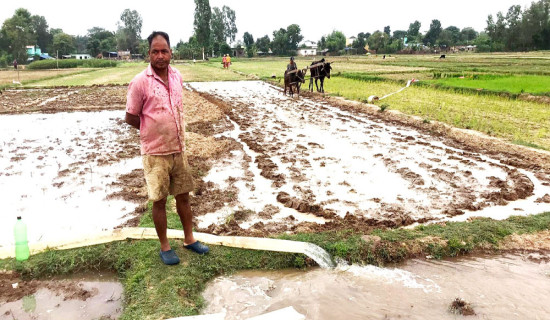- Wednesday, 30 July 2025
How Meditation Transforms People's Life
In the rush of everyday life, have you ever stopped to ask: “How is my mind?" We feed our bodies, we clean our homes, and we upgrade our gadgets. But when was the last time you cleaned your mind? As compatriots of the Buddha, how often have we truly followed his teachings—especially the practice of meditation? This is a call to remember what we’ve forgotten: the power of meditation. Not as a luxury, but as a daily necessity. Not as an escape, but as a return to clarity, calm and bliss.
Let me tell you a personal story. A few years ago, I did something unexpected that made even my closest friends raise their eyebrows. I took four months of unpaid leave from my job—not to travel the world, not to write a book, not even to renovate my house. I took unpaid time off to meditate. One of my wealthiest friends, who measures success in money and real estate, looked at me—half amused, half confused—and asked, “You’ve spent thousands of hours meditating. What do you have to show for it?”
Greatest treasure
It was an honest question. But it carried a deeper assumption many of us share: if something doesn’t bring material gain, is it even worth doing? Seems logical, right? But what if the greatest treasure we seek—peace, clarity, happiness—is not out there in the world, but within us? Over 2,500 years ago, the embodiment of peace, the Buddha, taught us just that. The very first verse of the Dhammapada (Buddhist Scripture) reminds us: “Mano pubbaṅgamā dhammā, mano seṭṭhā manomayā,” which means the mind matters most; everything is shaped by the mind. In the words of Lao Tzu: “If we correct our mind, the rest of life falls into place.”
We care for our bodies without question—we eat when we’re hungry, we shower when we feel unclean. But what about our minds? Why do people ask, “Why meditate?" Because the mind’s needs are subtle. We don’t see the clutter of mind or hear the quiet cry for calm. When thoughts race and emotions feel heavy and you feel stressed or anxious or constant sense of unease, we often ignore them or distract ourselves, pretending we’re fine. But the mind, like the body, needs care too.
Meditation is to the mind what a shower is to the body—a way to cleanse, refresh, and restore. It gives us space to breathe, slow down, and find peace amid life’s stress. Meditation clears mental fog, restores balance, and yes—even science agrees—it improves our health. Modern science has caught up with ancient wisdom. Studies from Harvard, Oxford, and the UK’s NHS show that meditation can lower blood pressure and cholesterol, boost immunity, improve sleep, reduce anxiety, depression and pain, enhance focus and emotional regulation and more
Even skeptics like Dr. Michael Mosley, a British journalist and BBC presenter, changed his mind. After just eight weeks of meditation, he reported profound improvements in clarity and emotional well-being. And don’t forget Matthieu Ricard, a French scientist-turned-monk living in Nepal, was dubbed “the happiest man in the world” by neuroscientists. So, as compatriots of the Buddha, we must not overlook the very practices that bring us clarity, health, and peace.
No, meditation isn’t just for monks. It’s for all of us. For young people anxious about studies or peer pressure. For middle-aged adults juggling work, family, and expectations. For older individuals seeking energy, clarity, or simply a moment of peace. Meditation offers a quiet space to breathe, reflect, and reconnect. And no, “I don’t have time” is not an excuse. We all have 24 hours a day—it’s about priorities. One hour of meditation can give you two hours back through clarity and efficiency. As Ajahn Chah, a revered Thai Buddhist teacher, said, “If you have time to breathe, you have time to meditate.”
Picture this: you walk into a room. It’s dim, cluttered, and chaotic. Clothes are strewn across the floor, papers are stacked in teetering piles, and it is very hard to find anything you’re looking for. You want to leave—but this is your mind before meditation. Now imagine the same room but transformed. Well-lit. Everything is in its place. You can easily find anything you need. It’s calm, open, and inviting. You want to stay. This is your mind after meditation.
Choice is yours
That’s the difference meditation makes. It doesn’t change the world outside—but it changes the space you carry within. And every day, you get to choose which room you live in. So choice is yours: do you want to live in a dirty room or a clean one? Around 20000 to 25000 – that’s how many times we breathe every day. Your breath is your most loyal companion, from birth to death. It asks for nothing, yet gives you the most precious thing – LIFE. But how often do we notice it? Probably not many.
So, let’s start noticing breath as a simple practice of meditation. As the saying goes, “Journey of a thousand miles starts with one step at a time”. Just notice your breath as you scroll your phone. Notice your breath as you eat, as you walk, as you go to sleep. Notice your breath when you are excited, worried, sad or happy. That simple breath awareness can change your life. So tomorrow morning, notice your breath before getting up and before checking your phone. Keep your eyes closed and notice your breath for 10 minutes.
(Dr. Prajapati is a Nepali British UK-registered mental health pharmacist, researcher, and meditation guide.)



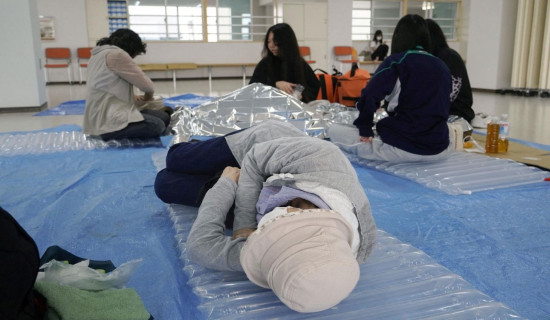
-square-thumb.jpg)
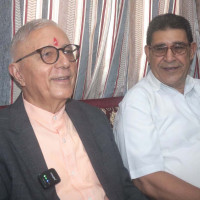
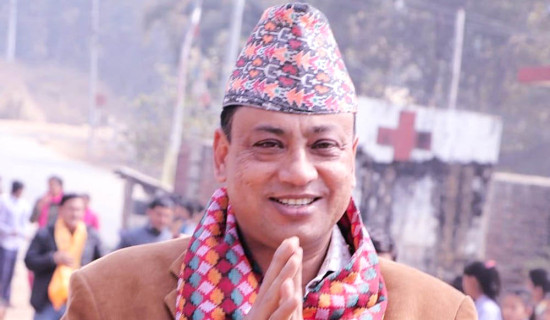
-square-thumb.jpg)
-square-thumb.jpg)


